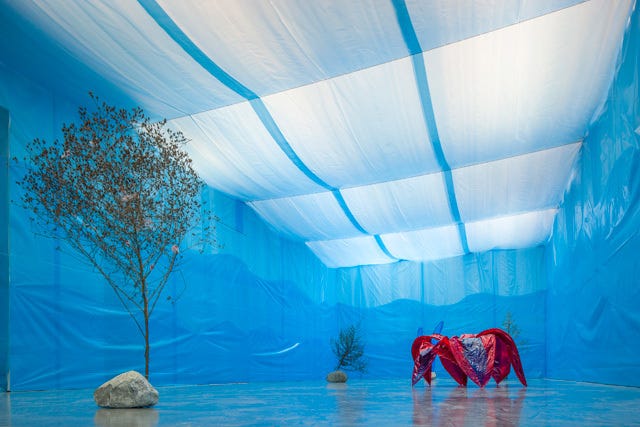My orchid has shriveled. This is the second one I’ve had this year. I feel bad because it was once so gorgeous, with bright yellow petals that lit up the room, and I wonder if something I did or didn’t do has quickened its demise.
When I moved into my apartment eight years ago, my mom brought me a small plant with spade-like leaves as a housewarming gift. I watered it every week and hoped it would make it through winter. At the time, I didn’t know that pothos, or devil’s ivy, is wonderfully resilient and easy to take care of. My plant grew quickly, and when the leaves began trailing on the floor, I trimmed the stems, put them in water, and grew more pothos.
I no longer wonder if it’ll survive another winter because I know it will, as it has for the past eight winters. I can’t help but think of it as a metaphor for my relationship with my mom. I trust that she’ll always be there for me (and I for her). It’s not something I ever have to think about. Our relationship doesn’t need much maintenance or doctoring to thrive.
With other relationships in my life, I’ve constantly asked myself, how much water? How much humidity? What kind of soil? Too much sun? Not enough sun? No matter how much plant literature you read, you can’t know the answers until you’ve tried a few things and failed. You need to develop your own intuition. In fact, reading too much can lead you astray. When I googled “why is my parlor palm turning yellow?” various horticulture and housekeeping blogs told me that it could be due to overwatering or—underwatering.
As unhelpful as this answer is, it rings true for many problems in life: you’re either doing too much of a thing or too little, and it can be hard to tell which it is. Good exists somewhere in the middle, rarely on the extreme ends, and the only way to find the happy medium is through experimentation, which fittingly contains the root for the word “peril.” I’m never going to be good with orchids unless I keep trying (and failing).
Relationships are basically two people taking care of the same plant. Typically, the more “anxious” partner is overwatering, while the more “avoidant” partner is underwatering (I use quotations because I believe we all have a bit of anxious and avoidant in us). Person A does most of the work and blames Person B for not pulling their weight. Person A will then go on to do even more to compensate, causing Person B to withdraw completely. This dynamic is all too common.
The key to rebalancing the scales is not to lean in but to lean all the way back, to make room for the other person to contribute. Remember, it’s two people trying to keep the same plant alive. If you’re overwatering, why would your partner water more?
Problems in relationships arise when you’re either too fixated on your partner or too fixated on yourself. I want it a certain way. He doesn’t know what’s good for him. If you correct every little thing your partner says, you’re probably too focused on being right (or proving them wrong) and neglecting the third entity, the relationship itself, which—forgive the cliché—is like a plant that needs care.
My last boyfriend said: You want something really badly and you go and get it. I admire that. But when you act that way with me, I want to resist your attempts to have it your way. Let me come around. Don’t force me to come around.
Sometimes being good to your plant means letting it take care of itself and channeling your enterprising energy elsewhere. It’s hard for someone with a “fixer” mindset to let go. The more we care about something, the more we overanalyze, talk to friends, talk to therapists, read books, scour the internet.
But you can’t really “fix” a relationship. Trying to fix a relationship is to play a finite game. It assumes there is a perfect state that can be achieved, and once achieved, the game is over. But the game doesn’t end. There will always be a new challenge, a new crisis. It’s much more important to nourish the relationship so that it’s healthy and strong, so that it can withstand stress. Being secure in a relationship means learning how to simply exist together, so you don’t have to worry if you’ll survive the winter.
There are plants in my apartment that I don’t think about until it’s time to water them. They’re doing their thing to stay alive every minute of every day. What would happen if I fussed over them all the time?
The good news with orchids is they wilt to conserve energy for the next flowering, and you can cut the spikes to propagate new bulbs. My orchid looks dead, but it’s really just resting.
You may have noticed I’ve been posting less frequently. This is mostly because I’ve been trying to finish my novel, and as you can probably tell, I have an exceptional capacity to focus on one project at a time. Expect to hear from me less in September, but I hope to be back on a more regular cadence in October.





your boyfriend was honest with you in the most simple way and i just love that. "let me come around" is so sweet. thanks for sharing <3